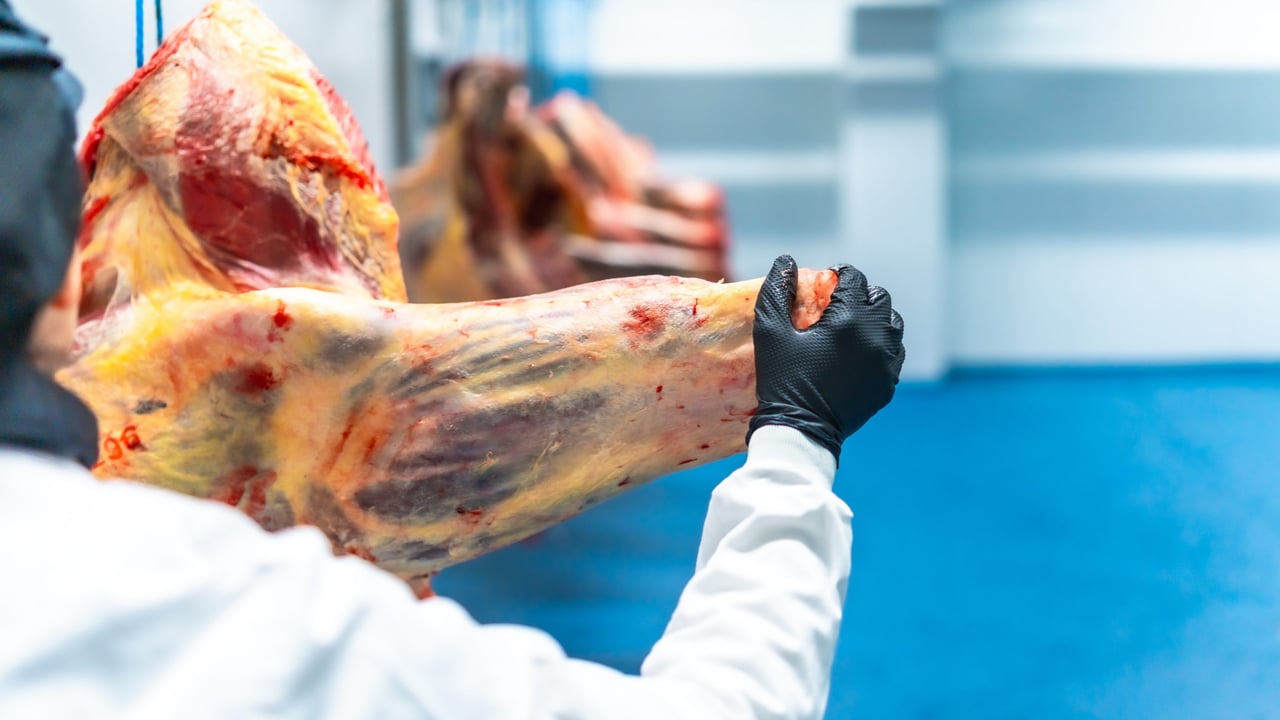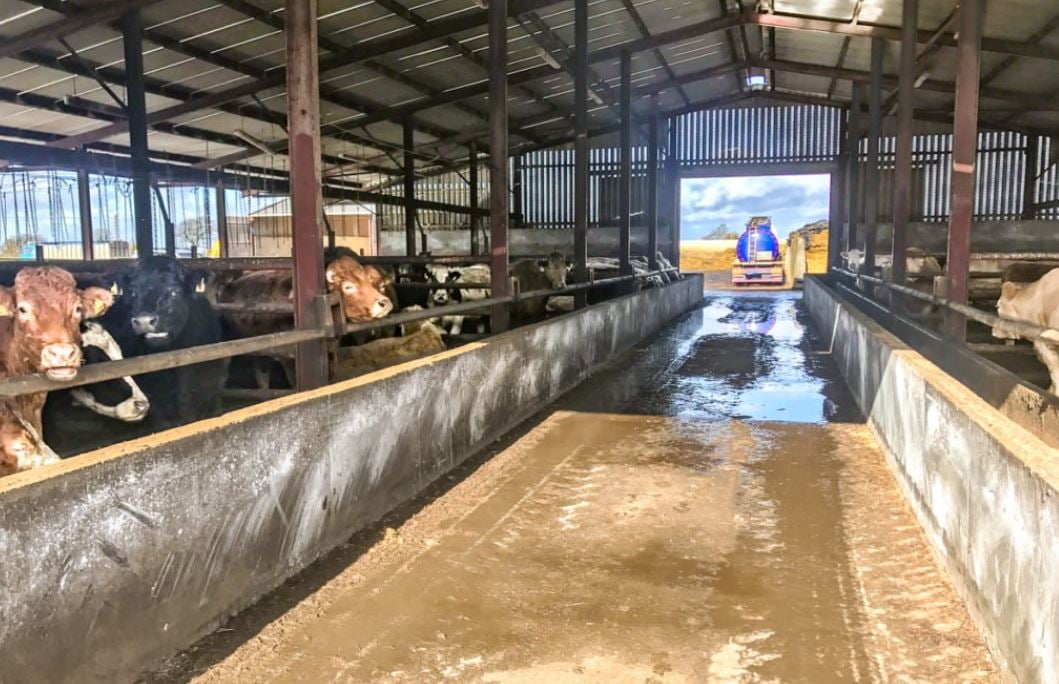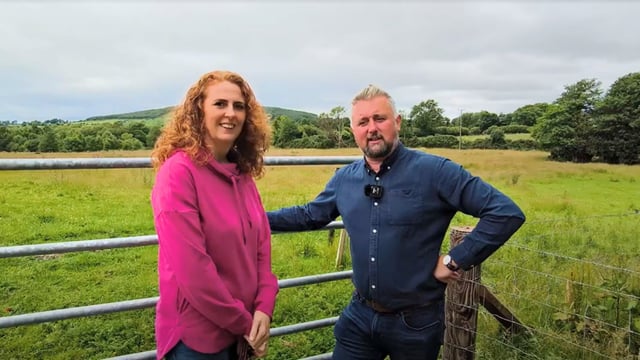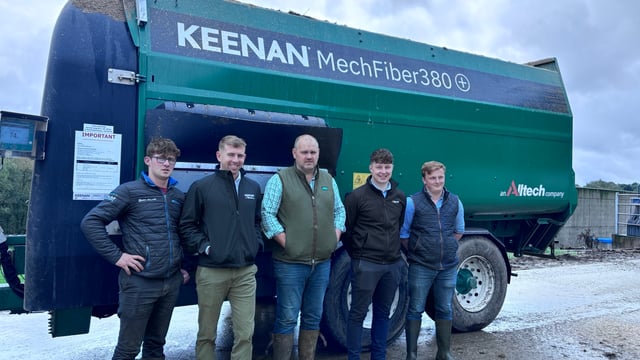DAFM report: 30 meat complaints investigated in 2024
The Department of Agriculture, Food and the Marine (DAFM) coordinated the investigation of 51 food complaints in 2024, 30 of which were related to meat products.
It did so on behalf of the Food Safety Authority of Ireland (FSAI) and the European Commission.
The data is revealed in DAFM's Annual Report 2024, which has just been published.
A five-year Service Contract effective from July 1, 2021 between the department and the FSAI, covers official controls on:
- Meat hygiene;
- Milk and milk products;
- Egg and egg products;
- Pesticides;
- Horticulture;
- Border Inspection Posts;
- Residues;
- Zoonoses Directive;
- Food labelling.
Of the 51 food complaints made in 2024, 30 related to meat/meat products, and 21 food complaints related to milk/dairy products.
Seven of the 51 complaints were "rapid alerts".
The food complaints ranged from conformance with labelling legislation, foreign objects allegedly found in products and quality issues.
Meanwhile, during 2024, 4,706 controls were carried out on meat establishments to verify that the relevant legislative requirements are being fulfilled at all stages of production, processing and distribution.
Supplementary technical controls included 6,997 visits to 'Meat FBOs' (food business operators).
In 2024, the corresponding number of risk-based audit and inspection controls carried out in dairy establishments was 1,351.
Supplementary technical official controls included approximately 12,800 samples taken in 2024.
The Department also issued 105,451 export certificates in support of the meat trade and 25,722 export certificates in support of the dairy trade to international markets.
Additionally, 127 intracommunity certificates were issued to EU member sates, supporting other MS onward certification to third countries.
A total of 1,083 milk and meat notices were served on dairy and meat FBOs, notifying them of infringements under the regulations and follow-up action was taken as necessary, according to the report.
The cost of meat inspection service in 2024 was around €37.9 million.
EU regulations provide for the recovery of the cost of meat inspection services at approved meat premises in respect of the veterinary inspection work carried out at these premises, which are mainly based on the level of throughput, e.g., unit fees for animals slaughtered ranging from €5 for cattle to €0.005 for small poultry.
A total of €15.7 million was collected in 2024, in respect of fees for meat inspections and related activity.
Following amending EU legislation introduced in 2020, which allowed meat and bone meal (MBM) to be used as a fuel, the department has stated that it is working with industry to develop sustainable, long-term options for the use and disposal of the material on the island.
Ireland produces some 60,000t of MBM annually.
Under EU amending legislation, Ireland can no longer be permitted to export Cat 1 MBM out of the EU for disposal from the end of June 2025.
The department said it is working closely with the four plants that received funding to dispose of MBM and the three Category 1 rendering plants to come up with solutions to deal with the shortfall in capacity across the four plants to use the MBM produced.
In 2024 there was a total of 6,545,119t of feed produced in Ireland, which is a 9% increase on 2023.
This was driven primarily by the unusually wet weather at the start of 2024, which impacted on grass growth and availability, according to the DAFM report.
The department is the central Competent Authority responsible for the enforcement of EU legislation concerning animal feed.
The focus of DAFM's controls is to ensure that feedingstuffs do not pose a risk to animal or public health, meet the prescribed minimum standards, are accurately labelled and fully traceable.
In 2024, there were 1,015 inspections/audits of Feed Business Operators (FBO) and 1,462 official samples of animal feed were taken for 9,724 analyses.
The department followed up on all non-compliances and said that it ensured the appropriate actions were taken by the FBOs involved.
In 2024, under the Fallen Animal Scheme, DAFM provided financial support for the collection of approximately 64,000 over 48-month bovine fallen animals.
All fallen bovines over 48 months must be tested for TSE (transmissible spongiform encephalopathies).
The national surveillance programme is concerned with Bovine Spongiform Encephalopathy (BSE) in cattle and scrapie in sheep.
The fallen farm stock element of the scheme, which was introduced in 2020, subsidises the collection and disposal of other farm stock, including, in 2024, approximately 200,000 bovines under 48 months (not subject to TSE testing), plus sheep and goats.
In March 2023, a further subsidy was introduced for 0-6 month calves and around 140,000 of 0-6 months calves were subsidised in 2024.
The department has approved 38 knackeries under the ABP regulations for the collection and disposal of fallen animals.







